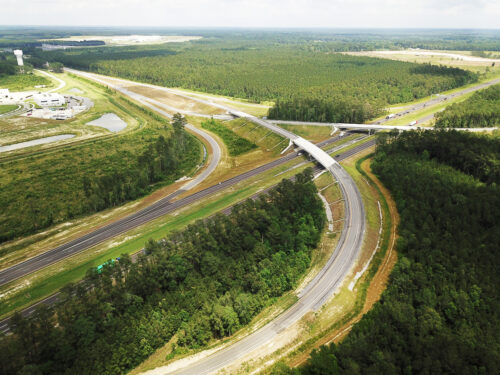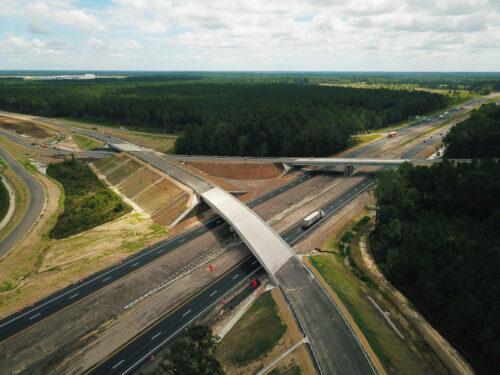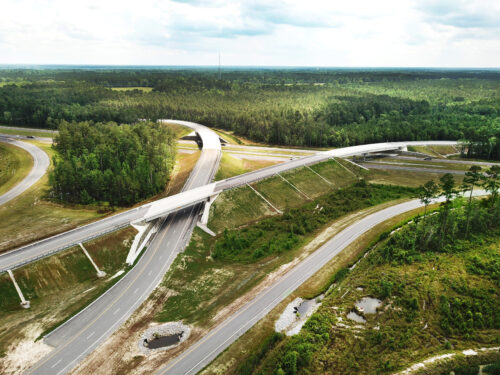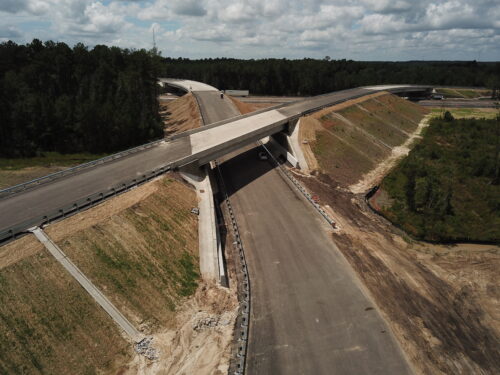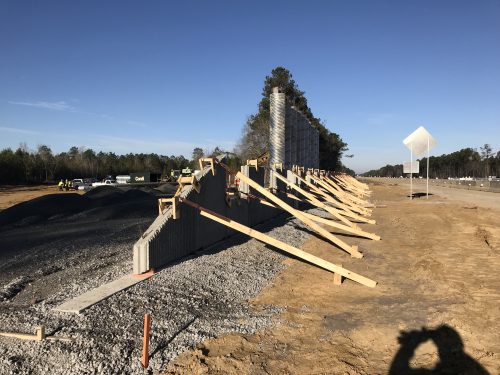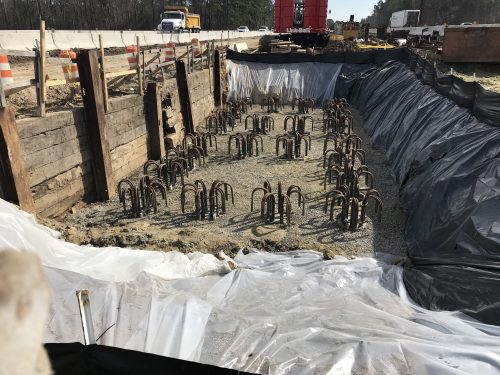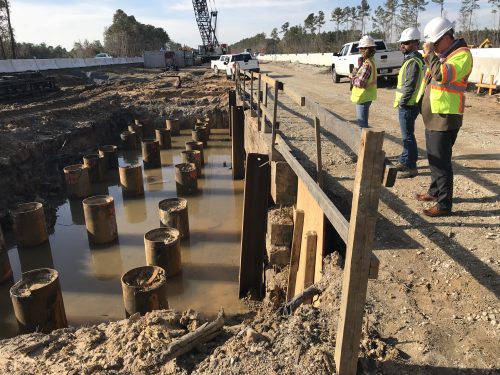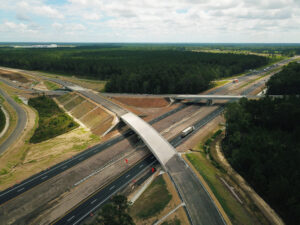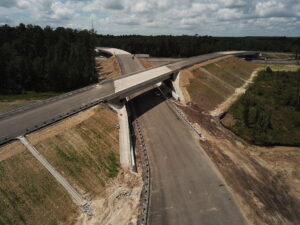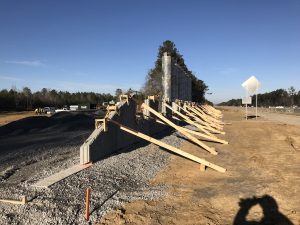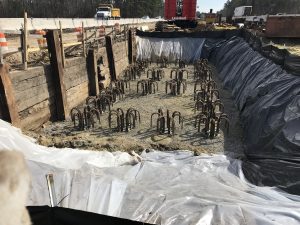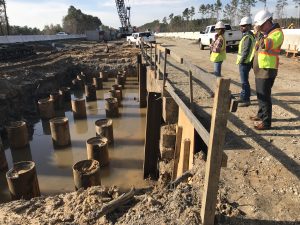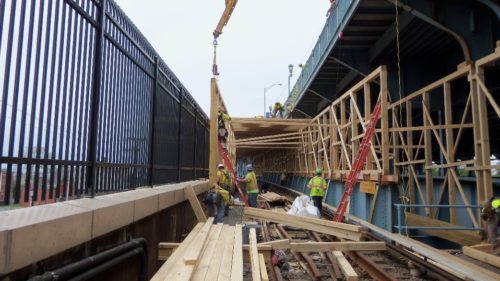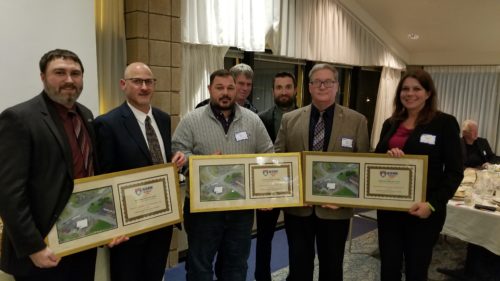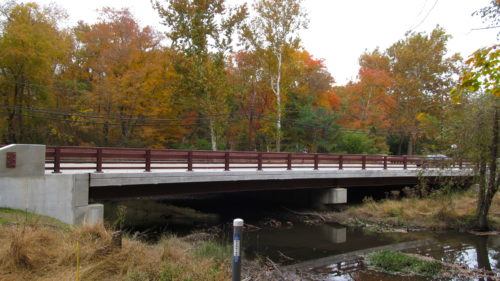I-26/Volvo Interchange
I-26/Volvo Interchange
As a major component of an incentive package that attracted auto manufacturer Volvo to build a plant in South Carolina, the state committed to provide a new interchange on I-26, improving access to a new Volvo plant site. The South Carolina Department of Transportation (SCDOT) selected the design-build team of Conti as contractor and JMT as lead designer to deliver on the state’s commitment.
The project provided a three-level, three-leg directional interchange with free-flow directional ramps for all movements using grade separated structures. This facilitated access to the Camp Hall commerce park as well as the new Volvo manufacturing facility. In addition, the project included the construction of a portion of Volvo Car Drive and resurfacing and cross slope correction of existing mainline I-26 within the project limits.
Specific components of work included bridges, MSE walls, ground stabilization, roadway grading and paving, drainage improvements, maintenance of traffic, signing and pavement markings, and sediment and erosion control.
During the pre-bid phase, extra care was taken to minimize impacts to the many wetlands surrounding the interchange. JMT’s highway and environmental staff collaborated to reduce the interchange footprint, reducing anticipated impacts by more than five acres. JMT also prepared the U.S. Army Corps of Engineers (USACE) permit modification request, coordinated with Berkeley County’s consultants, SCDOT, and the South Carolina Department of Commerce, and received approval in 13 business days. Concurrent with USACE permitting, JMT also prepared the environmental compliance plan, which included all environmental commitments and permit conditions, roles, and responsibilities.
With the project in a high seismic zone, an in-depth seismic design/analysis was required. A multimodal response spectral analysis was conducted by JMT’s structural staff to determine displacement demands at the end bents and interior piers during an earthquake event and achieve seismic performance goals in a constructible and economical manner. The team achieved the seismic performance goals for the three bridges and roadway embankments without extensive, and costly, ground modifications.
Drainage challenges always exist in the South Carolina Lowcountry due to high water tables and minimal change in grade. These challenges were met head-on to minimize piping and provide for on-site water quality with permanent vegetated roadside channels and temporary sediment basins within the project limits. During the final design, several large drainage conveyance trunk lines were eliminated, including those that would have been close to bridge retaining walls, which greatly reduced the potential for future maintenances hardships to SCDOT.
The year 2018 was the wettest on record in the Charleston area, and all soils available from local borrow pits were saturated. To keep the project on schedule, the contractor procured specialty dirt drying equipment to reduce moisture content in the soil and help achieve compaction requirements. JMT staff relocated to the project site to assist with the challenges of properly compacting these soils and gaining speedy approval from the construction inspection team. Having design engineers in the field working directly with contractor at the site successfully solved these issues in real time and helped mitigate potential delays to completion.
JMT’s innovation and insight resulted in a practical design that was constructible, met the SCDOT’s project criteria, and enabled the project to be constructed on time and to the satisfaction of stakeholders including SCDOT, Volvo, Berkeley County, and the South Carolina Department of Commerce. The successful completion of the interchange not only fulfills the state’s promises to Volvo, but it serves as a beacon for economic development in the state.
